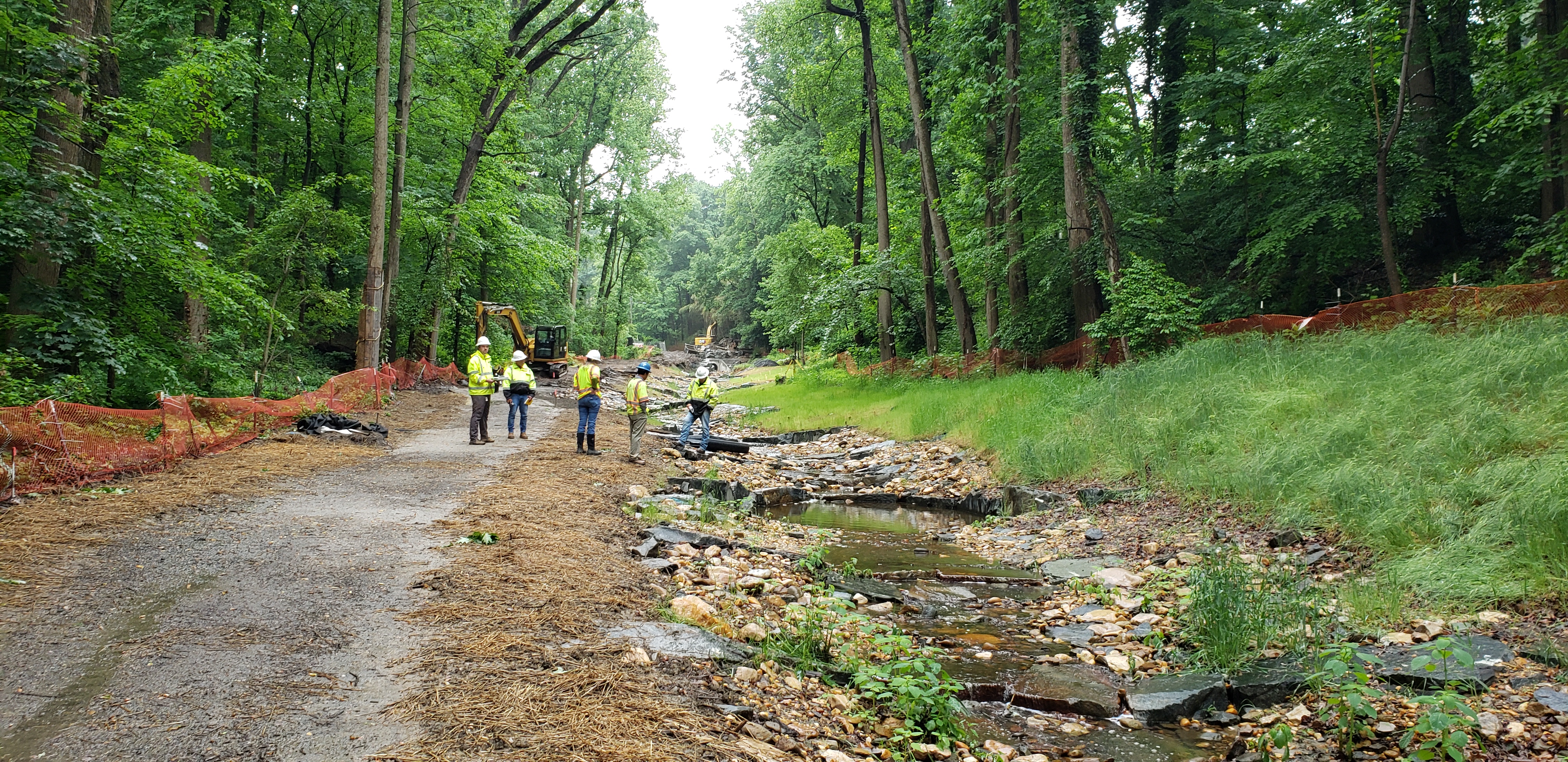Tackling the water crisis through policymaking—a new MNR course with Jason Papacosma
August 1, 2023

By Lindsay Kuczera
Jason Papacosma is developing a brand new Water and Marine Policy course for Virginia Tech’s Master of Natural Resources (Online) program that will be available in the Spring 2024 semester. With over 25 years of experience working for local government in urban watershed management and resiliency, he is sharing this knowledge and learned experiences to train the next generation of environmental stewards.
The evolution of water policy
The Clean Water Act, enacted in 1948 and notably expanded in 1972, made it unlawful to discharge any pollutant from a point source into waterways unless you have a permit. That “point source” specification was added in the 1972 expansion and focused particularly on wastewater and industrial sources. Despite these attempted safeguards, there were still a lot of water quality issues, including uncontrolled urban runoff.
Eventually, it was determined that a lot of stormwater comes out of pipes and that those could be regulated as a point source under this law. Although this opened the door to requiring permits for urban stormwater systems in the 1990s, it was still a much more difficult issue to control than factory or wastewater discharge.
“I’ve been here since last century,” Papacosma likes to joke. Starting as a watershed planner for the Arlington County Government in 1999, he has had the unique opportunity to evaluate the stormwater infrastructure mistakes of our past and help chart a path forward to correct them.
The case of Arlington, VA
Arlington began to grow at a rapid pace following WWII. The Pentagon and other federal resources were established, thousands of homes were built sparking city sprawl, and two-thirds of the area’s streams were paved over or piped and put underground. This swift growth and alterations in the hydrology meant many new stormwater impacts from tree loss and loss of green space, erosion, and soil compaction.
When Jason joined the Arlington County Government, they were just starting to take on the challenge of stormwater permitting, setting up new programs for urban watershed management, smart growth, and stakeholder engagement. Some of the solutions they began implementing included regulating stormwater for a range of development activities, from the larger commercial and multi-family scale down to single-family home parcels. It might not be obvious, but the majority of impervious surface growth from development activity in Arlington is from the sum total of new single-family homes replacing smaller existing homes. Regulating at the single-family home scale is a special challenge. “But, we have a saying that the only thing harder than doing this is not doing it because of the cumulative impacts,” said Papacosma.
Fast forward 20 years and climate change is yet another layer to this wicked problem. Flooding has become an increased public health, safety, and economic concern as climate change fuels more frequent and severe weather events. The steady march of new impervious surfaces mixed with these climate impacts creates more acute flooding, alongside accelerated impacts to water quality and stream health.
Papacosma said, ”We ask ourselves, ‘What will people sitting in our chairs think of us three decades from now?’ We look back to the fifties and sixties when we were paving over streams, piping streams, and there were no regulations. They didn't have the context and knowledge we have today, and even today, we are limited. We don’t know what we don’t know. How do we chart a long-term sustainable course when it comes to stormwater, water quality, and stream health?”
The county is implementing various nature-based solutions, including green infrastructure programs and stream resiliency projects that reconstruct streams in a way that protects infrastructure and people for the long run. They’re also beginning to slowly buy properties in the interior flood zones—pathways where floodwaters naturally flow—to take homes out of harm’s way and turn the lots into green recreational spaces.
When it comes to policy, Papacosma says they also have plans to introduce flood-resilient design guidelines. Developers or homeowners could use these guidelines voluntarily in the near term, and it’s possible that they could become code someday.

A new MNR course to address water issues
Water resource management is a fast-moving wicked problem given the speed at which climate change, urban sprawl, and development are accelerating. Sustainability practitioners must use the laws of the past as tools and guidance to implement smarter strategies and new policies that address the issues of our time while preserving this most vital natural resource for generations to come.
Through case study learning and discussion, students in the new Water and Marine Policy course will learn about a range of topics, from stormwater and flooding to agriculture and fisheries to transboundary water management. Students will explore how water policies have historically been created, what compromises were made, how science and data play a role, and how water resource managers work to recommend and implement new policies. “There's more than science that goes into considering policies. We have to consider how it affects people, business, economics, and more,” added Papacosma.
There’s also quite a bit of communications work that goes into policymaking, as Jason will teach in this course. Practitioners should anticipate putting together policy recommendations for leadership that will need to be done succinctly and presented in a way that resonates with decision-makers. “It’s important to understand how to message and how to distill complex information while not obscuring facts,” said Papacosma.
Students who take this course will leave with a deeper knowledge of the major water challenges of our time, how policymaking happens, the importance of various stakeholders and communities, and how to better communicate water policy priorities, no matter what your role in the organization may be.

Jason Papacosma has over 25 years of experience in local government and environmental management. He leads Arlington County's regulatory and stewardship programs focused on water quality and stream health. He is deeply committed to the principles of cross-department and interdisciplinary collaboration in service of the public good.
Jason currently chairs the Water Resources Technical Committee at the Metropolitan Washington Council of Governments. He is also a co-chair of the Diversity, Equity, and Inclusion Committee for the Department of Environmental Services.
Papacosma holds a master’s degree in Environmental Science from the University of Maryland and a bachelor’s degree in Environmental Studies and Biology from Bowdoin College.


